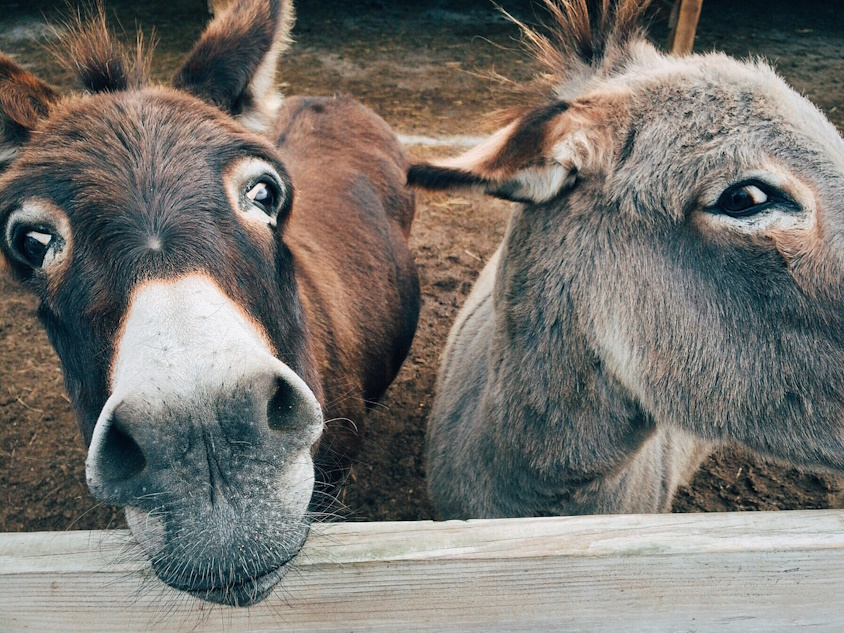There is something fascinating about miniature donkeys. Their soft eyes, large ears, and compact frames melt hearts and bring smiles. These small equines are more than adorable farm accessories—they are intelligent, versatile animals with a rich history and remarkable capabilities, ranging from practical farm work to emotional support therapy.
Introduction to Miniature Donkeys
Miniature donkeys, often called “minis,” typically stand between 32 and 36 inches tall at the withers (shoulder). They are significantly smaller than standard donkeys, which stand 36–48 inches or more. Unlike standard donkeys, minis were not bred as beasts of burden, though they can pull small carts and carry light loads proportional to their size.
What sets miniature donkeys apart is their gentle temperament. While all donkeys are more thoughtful and cautious than horses, miniature donkeys seem to have an extra dose of sweetness. They are curious, affectionate, and form deep bonds with humans and other animals. Their easygoing disposition makes them excellent companions for livestock, children, and the elderly.
Miniature donkeys are remarkably sturdy and healthy, often living 25–35 years with proper care. This longevity means welcoming a miniature donkey to your homestead is a long-term commitment, similar to adopting a dog or cat but with many more years of companionship.
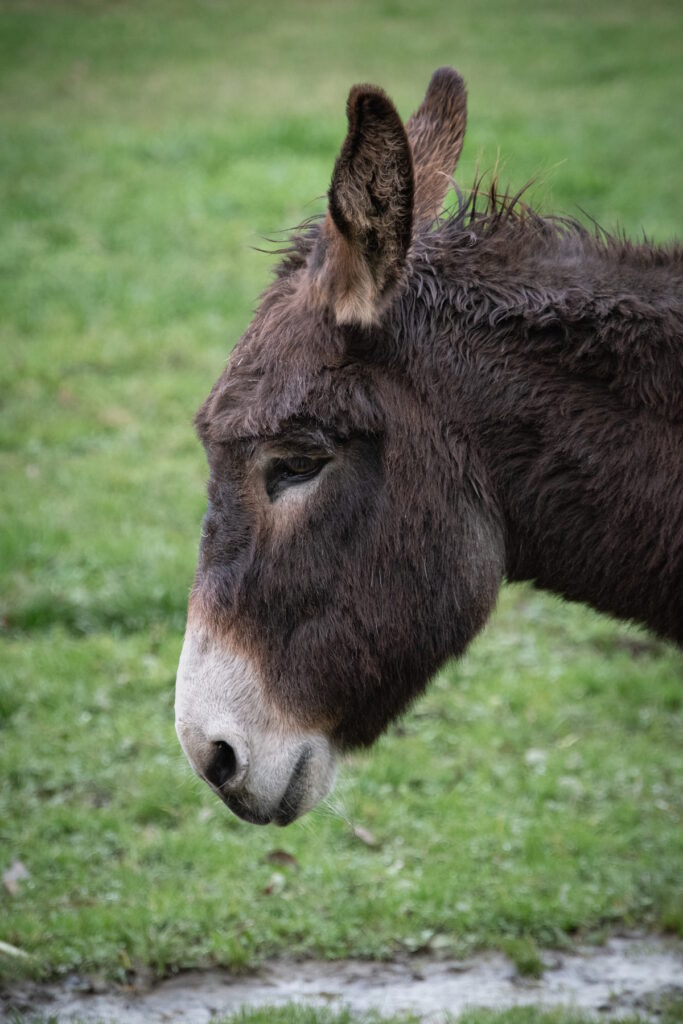
History and Origin
While standard donkeys spread throughout the ancient world as working animals, the miniature varieties developed in isolation on the Mediterranean islands of Sicily and Sardinia. The breed took centuries to define. Their small size was practical for navigating narrow village streets and working small terraced farms.
The first documented importation of miniature donkeys to the United States occurred in the 1920s when Robert Green, a New York stockbroker, brought seven miniature donkeys as pets for his children. By the 1930s, these charming animals had caught the attention of wealthy estate owners and animal enthusiasts.
The Miniature Donkey Registry of the United States was established in 1958 to maintain breed standards. Today, there are approximately 50,000 registered miniature donkeys in North America.
Ironically, the miniature donkeys that have become beloved in the United States are increasingly rare in their native Mediterranean homeland. Conservation efforts are underway in Sicily and Sardinia, making responsible breeding programs in the U.S. important for maintaining genetic diversity.
Physical Characteristics
Miniature donkeys are immediately recognizable by their compact size and distinctive features. Despite their small stature, they are remarkably sturdy and well-proportioned. They typically weigh between 200–350 pounds, with females (jennys or jennets) usually smaller than males (jacks). Their strong bodies are compact, with straight backs, deep chests, and well-muscled hindquarters.
The head is proportionally larger than a horse’s head, with the characteristic long ears that are perhaps their most endearing feature. These ears aren’t just adorable—they enable donkeys to have exceptional hearing. Their eyes are large, expressive, and set wide apart, often framed by lighter coloring.
Coat colors vary widely, though gray is most common. Others include brown, black, sorrel (reddish-brown), and spotted patterns. Many display the distinctive “cross” marking on their shoulders—a darker stripe running down the spine, intersected by another across the shoulders.
Their legs are straight and sturdy, ending in small, hard hooves, which are more oval-shaped rather than the rounder horse hoof. Their manes and tails are stiff and short, instead of flowing like a horse’s features.
Their vocalizations often surprise first-time owners. The famous “hee-haw” bray is loud, distinctive, and carries for long distances. Each donkey has a unique voice used for greetings, warnings, and expressions of excitement.
Role of the Miniature Donkey on Farms
Despite their size, miniature donkeys play several valuable roles on homesteads and small farms through their intelligence, sure-footedness, and protective instincts.
One practical role is as a guardian for smaller animals like sheep and goats. Donkeys have a natural aversion to canines and will protect their “herd” from dogs, coyotes, and other predators. A well-bonded miniature donkey will charge the adversary with a noisy bray and attack with powerful legs and sharp hooves. This can also alert the owners to danger.
For effective guardianship, it’s best to introduce a single jennet (female) or gelded jack (castrated male) to the herd when young. This allows bonding with their charges and develops protective behaviors. Intact males are generally not recommended as guardians due to potential aggression during breeding seasons.
Miniature donkeys excel at light draft work, pulling small carts weighing up to twice their body weight on level ground—hauling garden supplies, firewood, or children’s rides at farm events. Their calm nature makes them more reliable than ponies for such tasks.
On larger properties, they can serve as trail companions, carrying small packs with supplies. Their sure-footedness on rough terrain and cautious nature make them excellent trail partners.
Miniature donkeys contribute to farm management through their grazing habits. Unlike horses, which crop grass very short, donkeys are browsers who prefer weeds, brush, and coarser vegetation—excellent for managing overgrown areas and controlling invasive plants. Their efficient digestive systems allow them to thrive on lower-quality forage than horses require.
Perhaps most valuable, miniature donkeys serve as natural “stress reducers.” Their gentle presence provides a calming influence that benefits both humans and other animals. Many farmers report that time spent with their donkeys helps them decompress and reconnect with life.
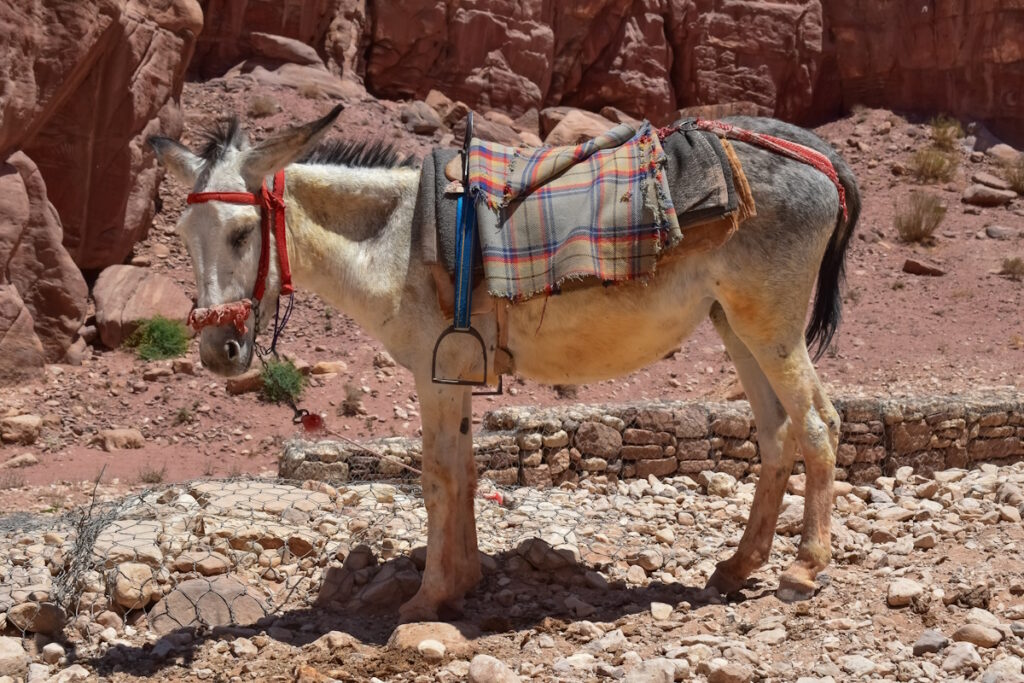
Miniature Donkeys as Therapy Animals
The therapeutic potential of miniature donkeys represents one of their most remarkable values. Their gentle temperament, intuitive nature, and non-threatening size make them ideal for animal-assisted therapy programs, benefiting people with physical disabilities, developmental challenges, emotional difficulties, and age-related conditions.
Unlike therapy horses, which may intimidate with their size, miniature donkeys stand at eye level with wheelchair users and are less imposing for children or individuals with anxiety around animals. Their patient nature means they rarely make sudden movements that might startle therapy participants.
Miniature donkeys excel in programs for children with autism spectrum disorders. Many parents and therapists report that children who struggle with human social connections often form immediate bonds with these animals. The donkeys’ clear body language and non-judgmental presence provide a safe space for developing emotional connections.
For elderly individuals, particularly those with dementia or Alzheimer’s, interaction with miniature donkeys can spark remarkable responses. The novelty often breaks through apathy, while their calm presence reduces agitation. Many memory care facilities report that non-verbal residents will begin conversing when miniature donkeys visit.
Physical therapy programs benefit from miniature donkeys’ assistance. Walking alongside a donkey provides motivation and balance support for individuals relearning mobility. The three-dimensional movement of riding engages core muscles and improves balance, coordination, and posture for riders small enough to be accommodated.
Veterans’ programs have found particular success with miniature donkeys for treating post-traumatic stress disorder (PTSD). The donkeys’ hypervigilant nature resonates with veterans experiencing similar symptoms. Learning to distinguish between the donkey’s normal alertness and genuine alarm helps veterans calibrate their own responses to environmental stimuli.
For therapy roles, miniature donkeys require specific training and temperament testing to ensure they are comfortable with unpredictable touches, unfamiliar environments, medical equipment, and various sounds and movements.
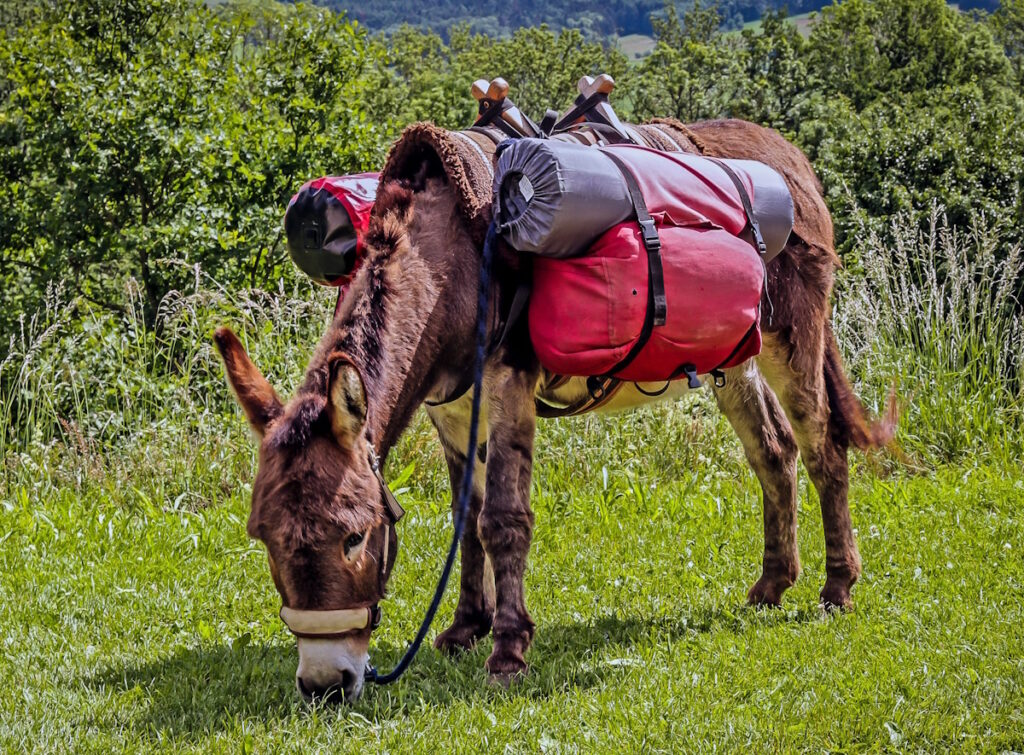
Training for Different Roles
Training miniature donkeys requires an approach different from horses. The key lies in understanding donkey psychology: where horses are flight animals who instinctively run from perceived danger, donkeys are thinkers who assess situations before responding.
This thoughtful nature makes donkeys excellent problem-solvers but can frustrate trainers accustomed to more immediately compliant animals. A donkey needs to understand why it’s being asked to perform a task and will resist commands it perceives as unsafe or illogical. Once convinced, however, donkeys become extraordinarily reliable partners who rarely forget their training.
Basic handling should begin early, ideally as foals. Teaching young donkeys to accept halters, lead calmly, stand for grooming, and lift feet for hoof care establishes the foundation for all future training. These fundamentals should be taught with patient, gentle persistence—never through force or intimidation.
For farm work, training progresses from ground handling to desensitization with equipment. Donkeys intended to pull carts should first become comfortable wearing harnesses and then dragging light objects before gradually introducing cart shafts and weight.
Guardian training involves careful socialization with the animals the donkey will protect. Young donkeys should be introduced to livestock under supervision, with positive reinforcement for appropriate behavior.
For therapy work, training focuses on desensitization to unusual stimuli—wheelchairs, walking aids, sudden movements, unexpected noises, and unfamiliar handling. Therapy donkeys learn to stand patiently during grooming activities, walk gently beside people with mobility challenges, and remain calm in varied environments.
All training should incorporate consistency in commands, positive reinforcement, short frequent sessions, clear boundaries, and patience for processing time. Successful training works with the donkey’s intelligence rather than trying to override it.
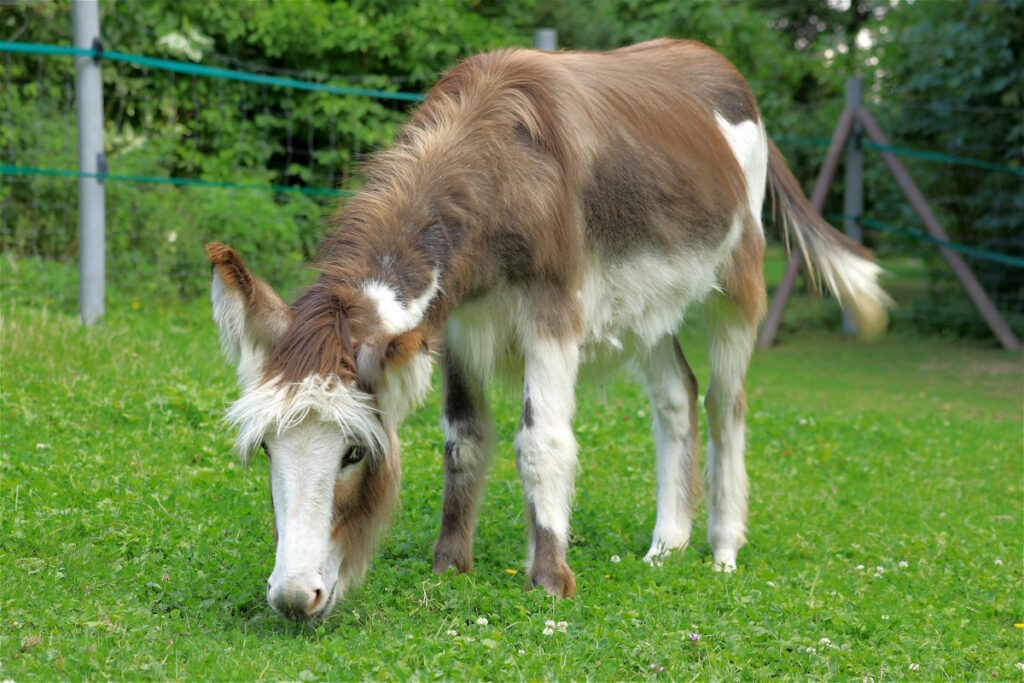
Why They Make Great Companions
Beyond practical applications, miniature donkeys have earned devoted followers through their exceptional qualities as companion animals. For many owners, the genuine bonds they form represent the most rewarding aspect of donkey stewardship.
Miniature donkeys possess remarkable emotional intelligence. They are attuned to human moods, often approaching caregivers with gentle nuzzles on difficult days or playfully seeking interaction when spirits are high. This sensitivity makes interactions feel deeply reciprocal.
Unlike some livestock that remains aloof, miniature donkeys actively seek human companionship once trust is established. They recognize caregivers individually, greeting them with distinctive brays. Many owners describe finding their donkeys waiting by gates, seemingly having anticipated their arrival.
Their affection expresses itself charmingly. Miniature donkeys often engage in mutual grooming with trusted humans, gently nibbling at clothing or hair as they would groom another donkey. They enjoy physical contact, leaning against people or resting their heads on shoulders.
Donkey loyalty is legendary. Once bonded, miniature donkeys develop fierce attachments that can last their lifetime. This loyalty extends to protection—many owners report that their donkeys position themselves between strangers and their human companions.
Each donkey develops distinct character traits, preferences, and habits. Some are perpetual clowns who seem to delight in making people laugh. Others adopt the role of field supervisors, solemnly observing farm work. Their expressive ears and faces telegraph their thoughts with surprising clarity.
For families with children, miniature donkeys offer valuable opportunities for teaching responsibility, empathy, and gentle leadership. Their forgiving nature makes them patient teachers, while their boundaries provide natural consequences for disrespectful handling without serious safety risks.
Fundamentally, miniature donkeys connect owners to a simpler, more grounded way of life. Their unhurried pace and present-moment awareness serve as natural antidotes to modern-day stress and overstimulation.
General Care Overview
Caring for miniature donkeys is relatively straightforward but requires attention to their specialized needs. Their desert heritage gives them different requirements than horses.
Shelter and Space: Miniature donkeys need protection from extreme weather, particularly rain and snow. Unlike horses, donkey coats can soak through, risking hypothermia. A three-sided run-in shelter provides protection while maintaining ventilation.
Minimum space requirements are 1/4 acre per donkey. Enclosures should have good drainage and varied terrain if possible. Fencing must be secure but need not be especially tall—miniature donkeys rarely jump. Standard field fencing works well; electric fencing alone is not recommended.
Nutrition: Appropriate feeding is critical. Donkeys were developed in an arid environment and have incredibly efficient digestive systems. This efficiency means overfeeding is a far more common problem than underfeeding.
The foundation diet should be grass hay (not alfalfa, which is too rich). Most miniature donkeys require about 2-3 pounds of hay per 100 pounds of body weight daily. Pasture access should be monitored carefully, as lush grass can cause obesity and potentially foundering.
Donkeys do not require grain unless underweight, pregnant, nursing, or working hard. A mineral block formulated for donkeys should be available, and fresh water must be accessible at all times.
Health Care: Preventative care includes regular hoof trimming every 6-10 weeks, annual dental checks, and a parasite control program. Typical vaccinations include tetanus, encephalomyelitis, West Nile virus, and rabies.
Donkeys rarely show obvious signs of pain or illness until conditions are severe. Owners must watch for subtle changes in behavior, appetite, or manure consistency that might indicate health problems.
Social Needs: As herd animals, miniature donkeys should never be kept alone. Ideally, they should have at least one other donkey companion, though they can bond with horses, ponies, or goats if necessary.
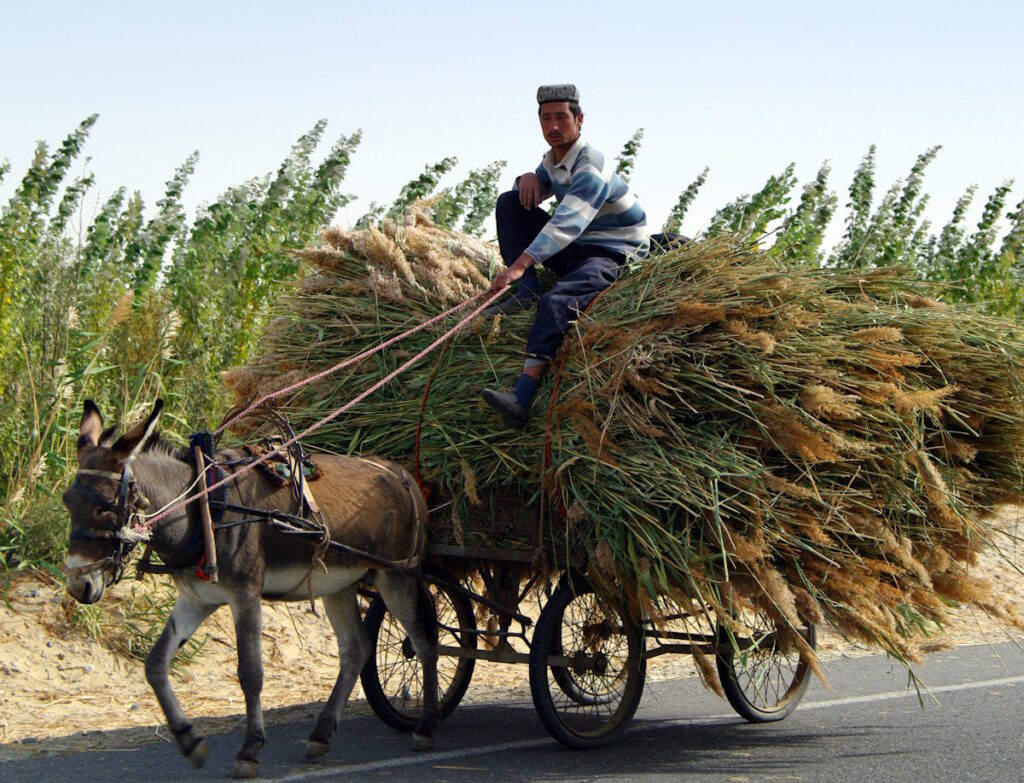
Choosing the Right Donkey for Your Needs
Finding the perfect miniature donkey match requires consideration of several factors:
Assess Your Goals: Define why you want a miniature donkey. Different roles favor different temperaments and training backgrounds. Be realistic about your expectations and available training time.
Consider Age:
- Foals (under 1 year): Highly adaptable but require substantial training. Expect 3-4 years before they’re mature enough for work roles.
- Young adults (2-8 years): Often ideal, past the unpredictable juvenile stage with many service years ahead.
- Mature adults (9-15 years): Experienced donkeys with established training and calm temperaments—excellent for first-time owners.
- Seniors (16+ years): Wonderful companions, though they may have increased health care needs.
Temperament: Observe how potential donkeys interact with strangers, their curiosity versus fearfulness, response to handling, behavior with current caregivers, and reactions to novel stimuli.
Health Assessment: Arrange a veterinary examination or conduct a thorough health check yourself, looking for clear eyes, clean nostrils, regular breathing, healthy weight, sound movement, well-trimmed hooves, clean ears, and a smooth coat.
Training Level: First-time owners should consider donkeys with established basic training. Experienced equestrians might take on younger or less-trained donkeys. Specific work roles require specialized training.
Acquisition Sources: Consider breeders (offering youngsters with known backgrounds), rescues (donkeys with assessment information but unknown backgrounds), or private sales (requiring detailed questions about history and care).
Compatibility Testing: Spend time with the donkey before committing. If possible, arrange supervised introductions with other animals or children to assess compatibility.
Remember that miniature donkeys routinely live 25-35 years—your choice represents a multi-decade commitment, so take time to find the right match.
A Rewarding Partnership
Miniature donkeys represent a unique intersection of practicality and delight. Their versatility allows them to transition between roles as working animals, therapeutic healers, and beloved companions. What makes them truly special is the depth of connection they form with people.
Whether seeking a helpful farmhand, therapy partner, or long-eared friend, miniature donkeys offer rewards extending beyond their practical contributions. Their thoughtful nature reminds us to slow down, approach challenges with patience, and find joy in everyday moments.
As interest in sustainable living, homesteading, and animal-assisted therapy grows, these remarkable little donkeys are finding their way into diverse settings. Their adaptability, manageable size, and straightforward care requirements make them accessible to various owners.
For those considering miniature donkeys, the journey promises to be rewarding. These wise animals have much to teach about communication, trust, and genuine connection—lessons extending far beyond the barnyard gates.
